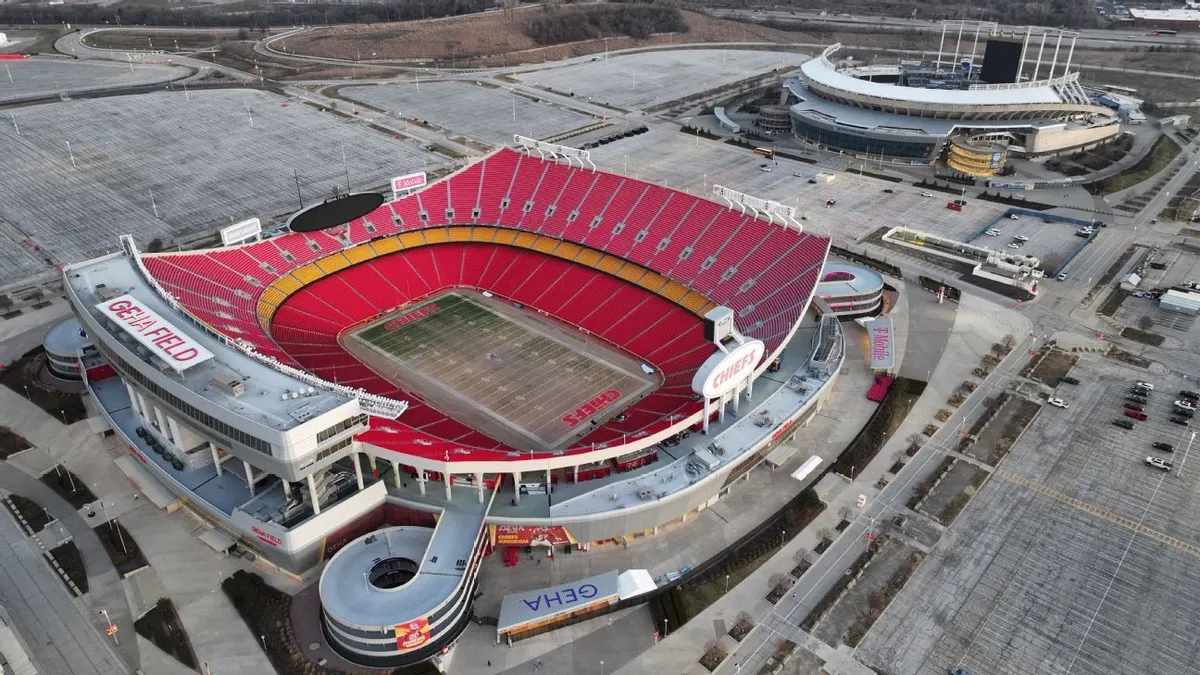
On Saturday, Missouri Governor Mike Kehoe made headlines by signing a significant legislative package aimed at retaining two of the state's most beloved sports franchises, the Kansas City Chiefs and the Kansas City Royals. This legislative move, approved by Missouri lawmakers earlier in the week, allocates hundreds of millions of dollars in financial aid to both teams. The goal is clear: to encourage the Chiefs and Royals to continue their legacy in Missouri.
Kehoe, a Republican, convened a special session to discuss the future of the teams, and lawmakers approved the financial package on Wednesday. Currently, the Chiefs and Royals share the Truman Sports Complex located on the east side of Kansas City, where both Arrowhead Stadium and Kauffman Stadium are situated. However, their leases with Jackson County are set to expire in January 2031, prompting both franchises to explore their options for the future.
Last year, voters in Jackson County rejected a proposed sales tax extension that would have funded an $800 million renovation of Arrowhead Stadium and a $2 billion ballpark district for the Royals in downtown Kansas City. This setback, coupled with the slow response from Missouri lawmakers, led Kansas to take proactive measures by authorizing bonds that could cover up to 70% of the costs for new stadiums within their state.
The Kansas City Royals have already secured a mortgage on property in Kansas while continuing to look for potential sites in Missouri. With a deadline of June 30 looming for the Kansas offer, both teams are racing against time to formulate a solid plan. Missouri’s new legislation allows for bonds that cover up to 50% of the cost of constructing or renovating stadiums, in addition to offering up to $50 million in tax credits for each venue.
If the Chiefs opt to remain in Missouri, they have proposed an ambitious $1.15 billion renovation of Arrowhead Stadium. In contrast, the Royals have consistently stated their intention to construct a modern replacement for Kauffman Stadium.
The issue of stadium funding has been a contentious topic in Missouri, especially in light of the devastating tornado that struck St. Louis on May 16, resulting in approximately $1.6 billion in damages. This disaster occurred just a day after the state legislature concluded its regular session. The need for disaster relief, intertwined with the stadium funding discussion, garnered significant bipartisan support. Democratic state Representative Kimberly-Ann Collins shared her personal experience of the tornado's destruction, highlighting the urgency of aiding affected families and businesses.
The Kansas City Chiefs expressed optimism regarding the legislative vote, describing it as a crucial step that allows them to continue exploring options to stay in Missouri. Meanwhile, the Royals acknowledged the legislation's importance in their decision-making process but refrained from making any site-specific commitments. In a statement, the team emphasized their focus on prioritizing the best interests of their fans, partners, and the broader regional community as they seek a new generational home.
While the Chiefs and Royals are at the forefront of this legislative package, the St. Louis Cardinals could also benefit if they decide to undertake a project costing at least $500 million. Their existing Busch Stadium was completed nearly two decades ago, and any new initiative would make them eligible for stadium aid as well. State Representative Jim Murphy remarked on the potential to preserve a significant symbol of Missouri through this legislation.
However, the legislation has not been without its critics. Some bipartisan pushback arose, with opponents labeling it a subsidy for wealthy franchise owners. Additionally, concerns were raised regarding a property tax break for homeowners that was added to the bill to garner votes, with critics arguing that it violates the state constitution by creating unequal levels of tax relief across different counties. Republican state Representative Bryant Wolfin criticized the bill as unconstitutional and fiscally irresponsible.
As Missouri continues to navigate the complexities of keeping its sports franchises, the coming months will be pivotal in determining the future of the Chiefs and Royals in Kansas City. The decisions made now will not only impact the teams but also resonate throughout the community and the state.